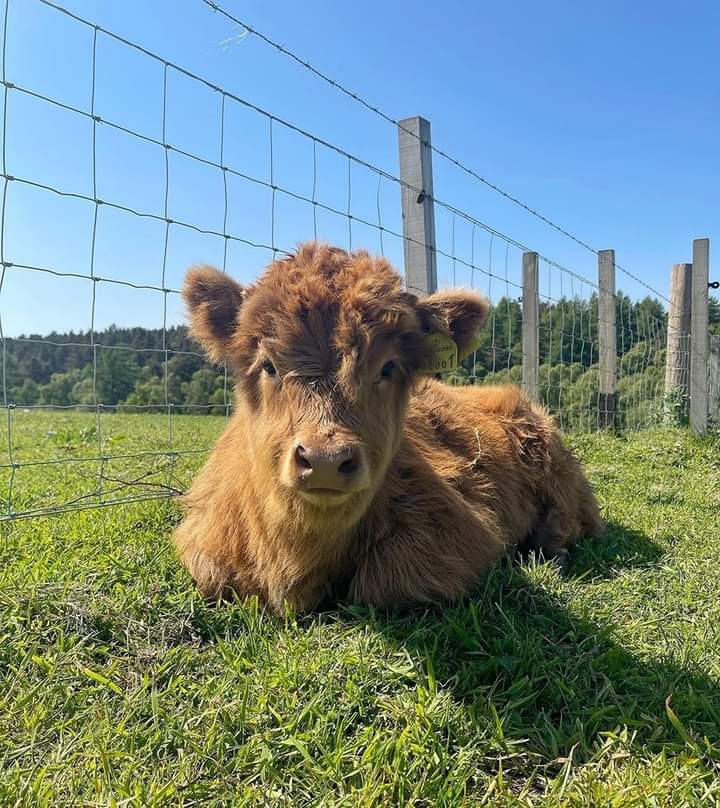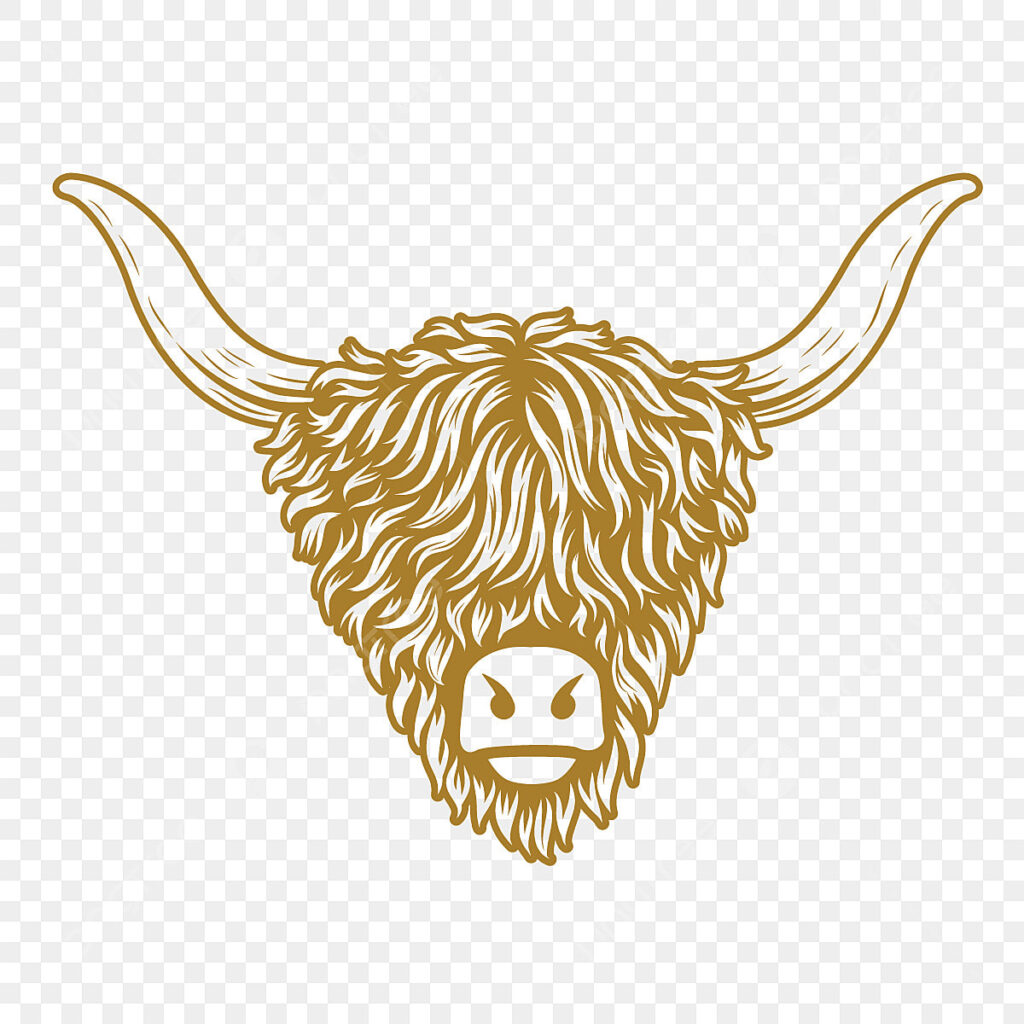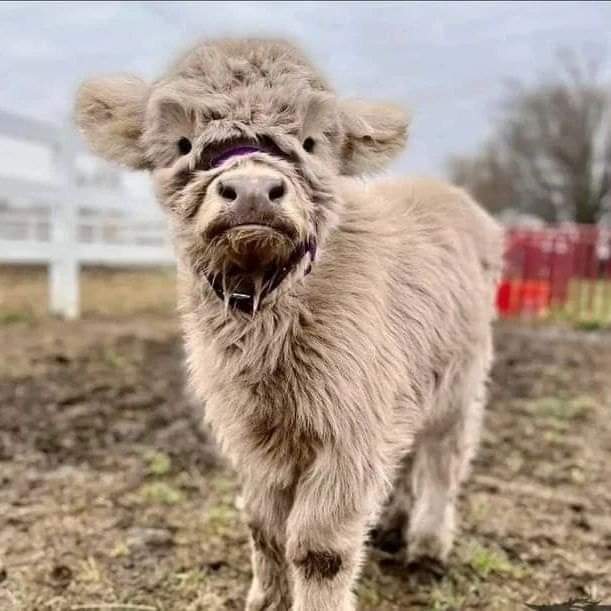Caring for your Mini Highland Cow can be a rewarding experience. These fluffy, docile creatures have won the hearts of many animal enthusiasts, but like all living beings, they are susceptible to illness. Knowing how to identify signs of health issues early is crucial to keeping your miniature highland cow healthy. In this guide, we’ll cover the top indicators that your furry friend might be unwell and what you can do to help.
1. Observe Changes in Appetite and Weight
Mini Highland cows are known for their hearty appetites. If you notice that your cow isn’t eating as much or is losing weight unexpectedly, it could be a red flag.
What to Look For:
- Sudden refusal to eat
- Weight loss over a short period
- Excessive chewing or drooling
Action Step:
Monitor their feeding habits for 24 hours. If the issue persists, consult a veterinarian. Early intervention can prevent more severe complications.
2. Monitor Their Coat Condition
A Mini Highland cow’s shaggy coat is one of its most charming features. However, changes in coat texture and appearance can indicate health problems.
What to Look For:
- Dull or patchy coat
- Bald spots
- Excessive scratching or rubbing
Action Step:
Regular grooming helps maintain coat health and allows you to check for skin issues, parasites, or unusual lumps.
3. Pay Attention to Breathing Patterns
Breathing difficulties can be a sign of respiratory issues. Healthy highland mini cows have steady, calm breathing.
What to Look For:
- Rapid or labored breathing
- Nasal discharge (especially thick or discolored)
- Persistent coughing
Action Step:
Ensure their environment is clean and dust-free. If breathing issues persist, seek veterinary care immediately.
4. Check Their Eyes and Nose
Bright, clear eyes are a sign of a healthy Mini Highland cow. Any changes here should be taken seriously.
What to Look For:
- Cloudy or red eyes
- Excessive tearing or discharge
- Nasal crust or mucus
Action Step:
Gently clean around their eyes and nose if necessary. Persistent symptoms may indicate an infection requiring professional treatment.
5. Monitor Mobility and Posture
Highland mini cows are naturally active and have a strong, sturdy build. Changes in mobility could be signs of injury or illness.
What to Look For:
- Limping or difficulty walking
- Stiffness in joints
- Unusual posture
Action Step:
Provide a soft, dry area for rest and observe their movements closely. If you suspect joint or muscle issues, contact a vet.
6. Keep an Eye on Dung Consistency
Healthy digestion is crucial for Mini Highland cows. Any changes in their dung can signal a problem.
What to Look For:
- Diarrhea or loose stools
- Blood in the dung
- Constipation
Action Step:
Ensure they have access to fresh water and a balanced diet. A sudden change in diet can cause digestive issues, so introduce new foods gradually.
7. Observe Their Social Behavior
Mini Highland cows are social creatures that thrive on companionship. A sudden change in behavior may indicate illness or distress.
What to Look For:
- Isolation from the herd
- Aggression or unusual nervousness
- Lethargy or lack of interest in play
Action Step:
Spend time with your cow to assess their mood. Changes in social behavior often accompany physical symptoms.
8. Watch for Signs of Pain or Discomfort
Cows, including mini Highland cows, may not always show obvious signs of pain. Subtle indicators can be telling.
What to Look For:
- Grinding teeth
- Arched back or unusual stance
- Vocalizations indicating distress
Action Step:
Take note of any behavioral changes and seek veterinary advice if the pain seems persistent or severe.
9. Assess Hoof Health
Neglected hoof care can lead to infections and other health issues. Regular checks are essential.
What to Look For:
- Cracks or splits in the hooves
- Foul odor or discharge
- Lameness
Action Step:
Trim hooves regularly and clean them to prevent infections. If you notice severe issues, contact a professional hoof trimmer or vet.
10. Keep a Health Journal
A health journal is a fantastic way to track changes in your mini Highland cow’s condition over time.
What to Include:
- Feeding habits
- Weight and coat condition
- Veterinary visits and treatments
- Notes on behavior and mobility
Action Step:
Review your notes regularly to spot trends or recurring issues. Early detection often leads to more successful treatments.
Final Thoughts
Mini Highland cows are delightful companions that thrive with attentive care. By staying vigilant and recognizing the signs of illness early, you can ensure your cow lives a long, healthy, and happy life.
Whether you’re a seasoned farmer or just exploring Mini Highland cows for sale, understanding their health needs is essential for responsible ownership. Don’t hesitate to seek veterinary care when in doubt—your furry friend deserves the best care possible.


